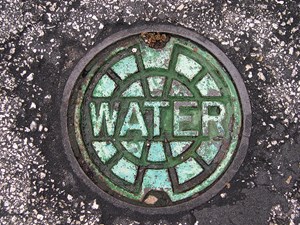EPA to invest $25.5 million in drinking water infrastructure projects across the country
(UI) – The U.S. Environmental Protection Agency (EPA) announced $25.5 million in grants through a new program to support drinking water systems in underserved, small, and disadvantaged communities while reducing impacts of climate change.

This is the first time EPA is awarding funding under the Drinking Water System Infrastructure Resilience and Sustainability grant program, with the 16 inaugural selectees spanning Connecticut to Alaska.
The 16 selected recipients of the funding are:
Public Water Supply District #8 of Platte County (Missouri): $569,955 to replace aging water mains and service lines to prevent water loss leaks and protect drinking water system infrastructure from drought.
Ketchikan Gateway Borough (Alaska): $332,000 to install generators to protect drinking water system infrastructure from flooding, earthquakes, and severe weather.
Saint Paul Island City (Alaska): $4,651,170 to install emergency generators and update infrastructure, including computerized Supervisory Control and Data Acquisition capabilities, to protect drinking water system infrastructure from earthquakes, blizzards, cyclones, and flooding.
Antelope Valley-East Kern (California): $559,760 to install fuel trailers and a generator to protect drinking water system infrastructure from drought, earthquakes, and flooding.
City of Fresno (California): $3,700,214 to replace failing water pipes to protect drinking water system infrastructure from drought.
Indian Wells Valley (California): $2,790,000 toward water supply enhancement efforts to protect drinking water system infrastructure from drought, earthquakes, and climate change.
St. Charles Mesa Water District (Colorado): $175,158 to install a water line to protect drinking water system infrastructure from wildfires and drought.
Connecticut Department of Public Health (Connecticut): $556,000 to construct an emergency water line and pumping station to protect drinking water system infrastructure from drought.
City of Fargo (Georgia): $570,000 to construct a well and well operating system to protect drinking water system infrastructure from drought and wildfires.
City of Waitsburg (Washington): $570,000 to replace water main lines to protect drinking water system infrastructure from flooding, earthquakes, wildfires, and wind.
Clarksburg Water Board (West Virginia): $3,868,000 to protect the drinking water system from effects of rising temperatures in summer months, when precursor organic compounds lead to increased trihalomethanes production, by installing mixing and aeration equipment in water storage tanks.
Executive Office of the Government of the Virgin Islands (U.S. Virgin Islands): $400,000 to support data collection and modeling efforts to protect drinking water system infrastructure from drought, hurricanes, and earthquakes.
Dry Creek Rancheria Band of Pomo Indians (northern California): $331,769 to support infrastructure and computerized control improvement projects to protect drinking water system infrastructure from wildfires.
Newtok Village (western Alaska): $5,255,974 to support construction and infrastructure relocation efforts to protect drinking water system infrastructure from erosion and flooding.
Northern Cheyenne Tribe (southern Montana): $570,000 to support water supply system upgrades to protect drinking water system infrastructure from natural hazards, including drought and wildfires.
Swinomish Indian Tribal Community (coastal Washington): $600,000 to develop an integrated water resources management plan to protect drinking water system infrastructure from earthquakes, flooding, wildfires, and tsunamis.
The Drinking Water System Infrastructure Resilience and Sustainability grant program was established under the America’s Water Infrastructure Act (AWIA) of 2018. AWIA improves drinking water and water quality, deepens infrastructure investments, enhances public health and quality of life, increases jobs, and bolsters the economy.
Related News
From Archive

- Glenfarne Alaska LNG targets late-2026 construction start for 807-mile pipeline project
- U.S. water reuse boom to fuel $47 billion in infrastructure spending through 2035
- $2.3 billion approved to construct 236-mile Texas-to-Gulf gas pipeline
- Major water pipe break in Puerto Rico hits over 165,000 customers
- Potomac River Tunnel project enters construction phase beneath Washington, D.C.
- Pennsylvania American Water launches interactive map to identify, replace lead water service lines
- Trump's tariffs drive $33 million cost increase for Cincinnati sewer project
- Utah city launches historic $70 million tunnel project using box jacking under active rail line
- Tulsa residents warned after sewer lines damaged by boring work
- Fatal trench collapse halts sewer construction in Massachusetts; two workers hospitalized



Comments